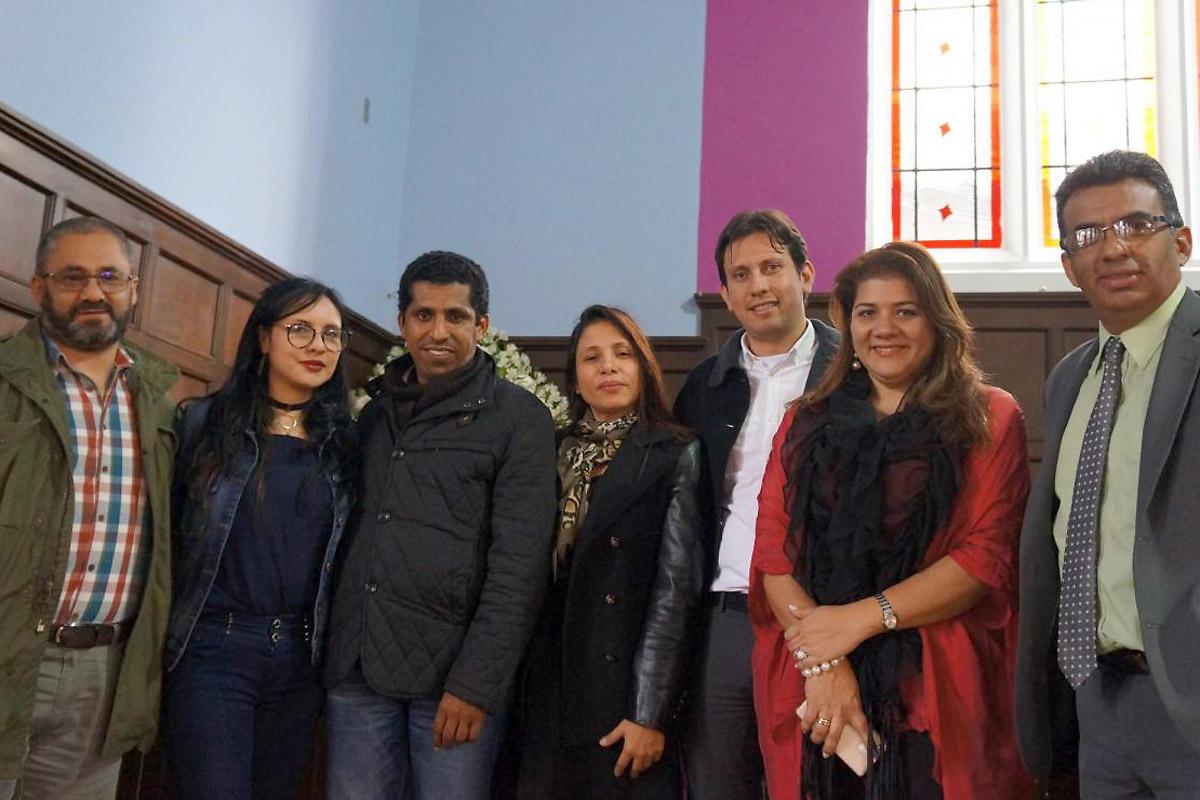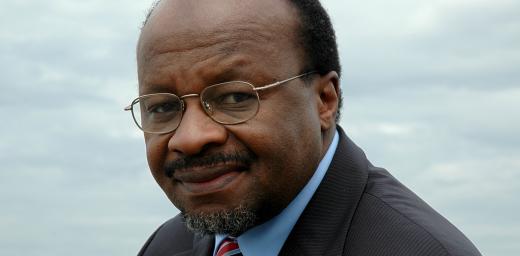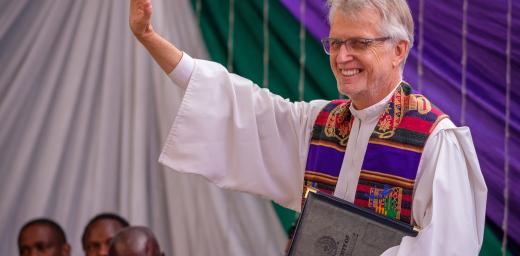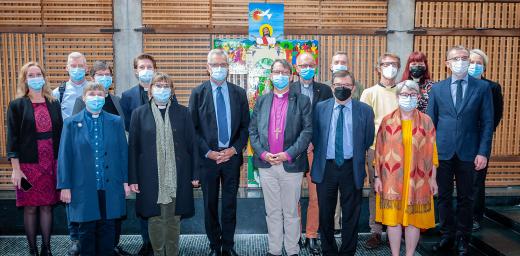An alternative space for dialogue

Members of the Reformation anniversary Joint Commission in Colombia, during a planning meeting for upcoming events. Photo: LWF/P. Cuyatti
Colombian churches, civil society and government mark Reformation anniversary
(LWI) - An initiative between churches, the government and civil society in Colombia to commemorate 500 years of the Reformation “has created space for our diverse institutions to work together and bring to light our deeply rooted heritage,” says Lutheran Bishop Atahualpa Hernández Miranda.
The leader of the Evangelical Lutheran Church of Colombia (IELCO) says the idea initially proposed by his church to engage with other institutions in commemorating the Reformation anniversary has resulted in a variety of important cultural, academic and religious activities focusing on peace as the key theme. A “Joint Commission” established in 2016 draws participation from several churches and the government’s Ministry of Interior and its Office for Religious Affairs, public and church universities and other educational institutions as well as media organizations.
“Given the daily experiences of our country, marked by issues of conflict we offer an alternative space for dialogue. Through our different expressions we have come together to enrich one another through cooperation and celebration,” Hernández notes.
Given the daily experiences of our country, marked by issues of conflict we offer an alternative space for dialogue. Through our different expressions we have come together to enrich one another through cooperation and celebration.
In early July, the IELCO bishop and other church leaders participated in a ceremony during which Colombian President Juan Manuel Santos signed a historic decree establishing 4 July as a national day of religious liberty and freedom of worship in the country. The president commented that it was the shortest decree he had signed in six years, but one that carried great symbolism and importance in the search for lasting peace after 52 years of armed conflict.
The event was a major contribution to the government’s efforts to make visible strategies that strengthen religious freedom and worship through public policies and actions that contribute to sustainable development, reconciliation and the search for peace, Hernández said.
IELCO’s Reformation anniversary commemorations kicked off with an ecumenical service in the first Protestant church in Bogotá on 31 October 2016, and will conclude on 31 October this year with a prayer service that will include a liturgical act. The various activities are communicated widely on television, radio and internet platforms.
Lasting peace is a major preoccupation for Colombians. Last year the government and the Revolutionary Armed Forces of Colombia (FARC) announced an agreement to end more than five decades of civil war. And recently, the National Liberation Army (ELN), also party to the conflict, has indicated its ongoing negotiations with the government could lead to declaration of a ceasefire.
The Lutheran World Federation (LWF), which IELCO joined in 1966, continues to encourage both the government and rebel groups to work toward reconciliation and just peace in the country.





